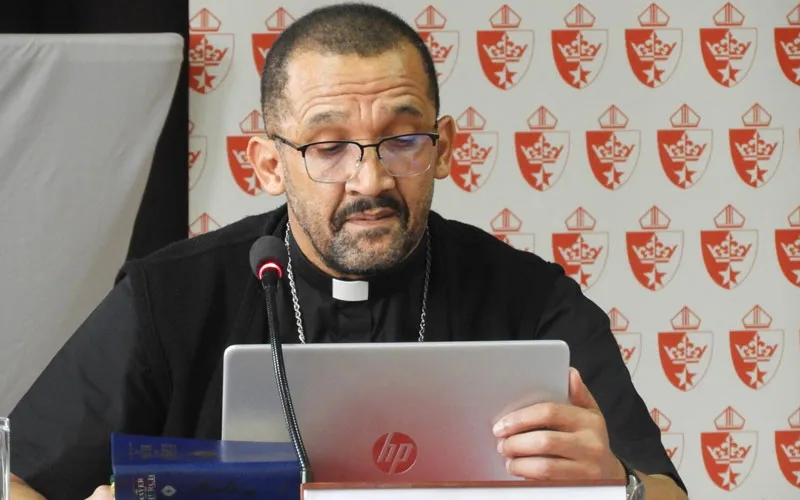He recalled that in his book, Fr. Nolan, a world-renowned researcher who died in October last year, had dismissed “the romanticization or canonization of the poor.”
Giving reasons, Fr. Nolan noted that poor people are not necessarily good and virtuous because they are poor.
Bishop Sipuka reiterated Fr. Nolan’s message and blamed the poor people for always colluding with the government to stay in a poverty cycle.
“For me, the problem with the poor is their collusion with the government in being made dependent. They have made themselves objects of delivery by the government, and the government likes that,” Bishop Sipuka said.
He continued, “While it is true that the government has a major role in providing for the vulnerable, many poor people can do something for themselves and live a dignified life, but they won’t.”
(Story continues below)
Instead of doing something to help themselves, the poor people are always waiting for grants from the government, the Catholic Bishop said, adding that such people also antagonize and terrorize other African people who come and use the opportunities they throw away.
“We must constantly challenge our people to appreciate their dignity and do what they can to provide for themselves,” he said.
“By the look of things, there is little hope that we will overcome this hopelessness of poverty and moral bankruptcy any time soon. Yet, as a Church, which has hope as one of its characterizing traits, we must come out of this plenary with some message of hope, or better still, with some action of hope,” the SACBC President said.
He underscored the need for the people in the society’s middle class to work with the poor to end what he referred to as the “hopelessness of South Africa”.
“I dare say that the poor are struggling alone for the most part, while we and other people of the middle class like us, all we do is complain while we are secured in our comfort and with our three meals a day guaranteed,” he said.
The Bishop who has been at the helm of Mthatha Diocese since his Episcopal Ordination in May 2008 added, “It is time for us, middle-class and educated people, to come to the party to stop our country from going down the drain and engage with what is happening.”
In his address at the SACBC Plenary, Bishop Sipuka also paid tribute to Pope emeritus Benedict XVI, describing his passing on December 31 last year as historical for the Church.
“We are having our Plenary soon after the historical event of the passing on of Pope Benedict XVI. Historical because his mark as a theologian, a Pope, and a leader is recognized globally,” Bishop Sipuka said.
He remembered the late Pontiff as a Church leader who “invited us to the truth that transcends our limited understanding.”
“Although his theological stance and style of leadership as universal pastor of the Church remain a matter of debate, he has no doubt left a legacy about the exposition of the Christian faith. As we begin this plenary meeting, we renew our gratitude to God for Pope Benedict, and we accompany him with prayers,” Bishop Sipuka said January 18.
Agnes Aineah is a Kenyan journalist with a background in digital and newspaper reporting. She holds a Master of Arts in Digital Journalism from the Aga Khan University, Graduate School of Media and Communications and a Bachelor's Degree in Linguistics, Media and Communications from Kenya's Moi University. Agnes currently serves as a journalist for ACI Africa.








